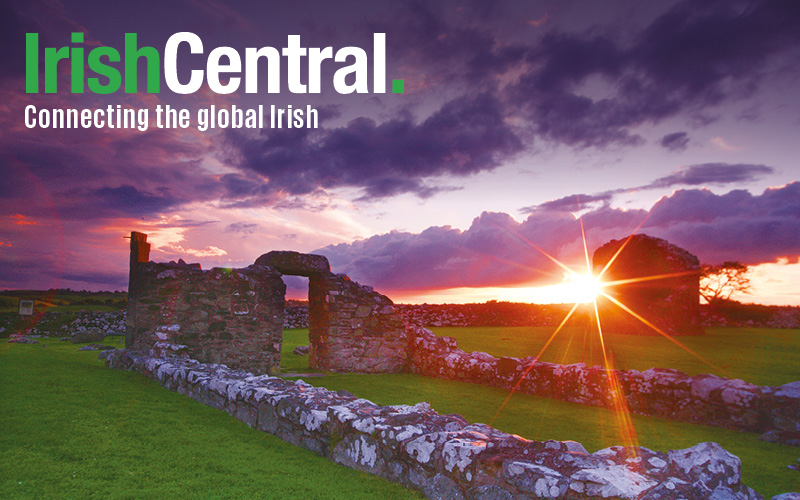| Anglea Merkel and Nicolas Sarkozy — Merkozy Photo from Die Welt |
While Merkozy (get it? Clever, no? It's not mine.) dither over whether to rescue the Greeks and save the euro at great cost to their own people or to cut Greece loose and risk losing the euro at great cost to everyone else we in Ireland just keep cutting costs in a bid to balance our budget and start repaying the massive debts run up by our 'live for today' banks and our 'tomorrow will never come' government.
Economically it's a very dark day. And yet, and yet, and ... There are some shafts of light starting to break through the dark cloud above us.
First, as my mother likes to say, misery loves company. That so many other European countries are now facing something of a crisis, including big boys Italy and, maybe, even France depending on how big a hit their banks have to take if Greece does have to 'restructure' its debts, has opened up the possibility that our bank debts might be 'Europeanized.' That is, the debts of all of Europe's troubled banks might become the responsibility of the EU as a whole, and not just the individual state's. That would be great for us if it happened because, well, our banks were more profligate than any other state's.
Even without the 'Europeanization' solution the debts issue is not quite as serious as it seemed a few months ago. Sure we still owe far too much, but maybe not quite as much as we feared and our paymasters have been cutting us some slack on the interest rate on our debts. That's all to the good.
Every penny saved on the interest bill is a penny that doesn't have to be cut from the day-to-day spending by the government. And there have been cuts. Serious cuts. Painful cuts. The kind of cuts that make people angry. The kind of cuts that have led to riots and strikes in Greece and Portugal. Yet here all is calm. It hasn't gone unnoticed.
The past few weeks have seen a surge in positive commentary on Ireland's ability to bear the pain of austerity. Yesterday on Bloomberg currency expert Richard Franulovich proclaimed that "Ireland is the one shining example where the austerity is playing out and they're meeting targets." Over the weekend a CNBC report noted that Ireland may be ready to exit the PIIGS - Portugal, Italy, Ireland, Greece & Spain. Before that we had the Financial Times declared that Ireland is "nursing itself back to health."
A couple of straws in the wind. There is still a long way to go, but it's a solid start.
____________
Read More:
Radical reform needed in economy says business chief
Massive rise in emigration as 40,000 left Ireland in 2010
Irish Government to open a new Toronto offices as emigrants continue to arrive
_____________
Great, but where is the economic growth going to come from? Well, exports are booming. Although the property-fed bank disaster has seriously damaged big chunks of the Irish economy, there are some industries that have made adjustments and kept on going.
Pharmaceuticals and information technology are two key industries that are still producing, still growing despite the difficulties here. In fact, I heard recently there are thousands of unfilled jobs in IT despite the lengthy unemployment lines. Those jobs are in Irish companies, not the big American names such as Google, Microsoft, Facebook and Intel. Enterprise Ireland, a government body, has even produced a video to entice workers into the field.
Tourism is also expected to be a big winner, but possibly the most unlikely source of future growth is agriculture.
Farming. It's almost unbelievable, but farming is a great growth industry in Ireland. Unbelievable because if you listen to the farmers they haven't had a good year since the wheel was invented, but at the moment farming and related businesses are a big part of what success we have.
Farming may sound old fashioned and an unlikely growth industry, but it is. Agri-foods is the term used today and agrifoods are booming: 150,000 employees and 19% annual growth.
China's importing a lot of baby formula these days and 60% of the world's baby formula comes from Ireland. That's agri-foods. Not just milk production, but a product made in Ireland from Irish milk. There's a great future in all sorts of products built around our dairy and other farming sectors.
India, China and North Africa are buying a lot of Irish beef. Milk and meat, growth products in the global food business and two products for which are our climate and soil are ideally suited. There is no good reason Ireland cannot be a world leader in milk and meat production.
Farming is also part of the knowledge economy. The urban stereotype of the stubborn, aging man meandering behind a handful of cows is out. Demand for places on Agricultural Science courses is rising rapidly. Tomorrow's farmers will apply the lessons of science and marketing to ensure Ireland's agri-foods business produces products that compete in the global food industry. The future is actually fairly bright - once we've conquered the debts of yesterday's failures.




Comments